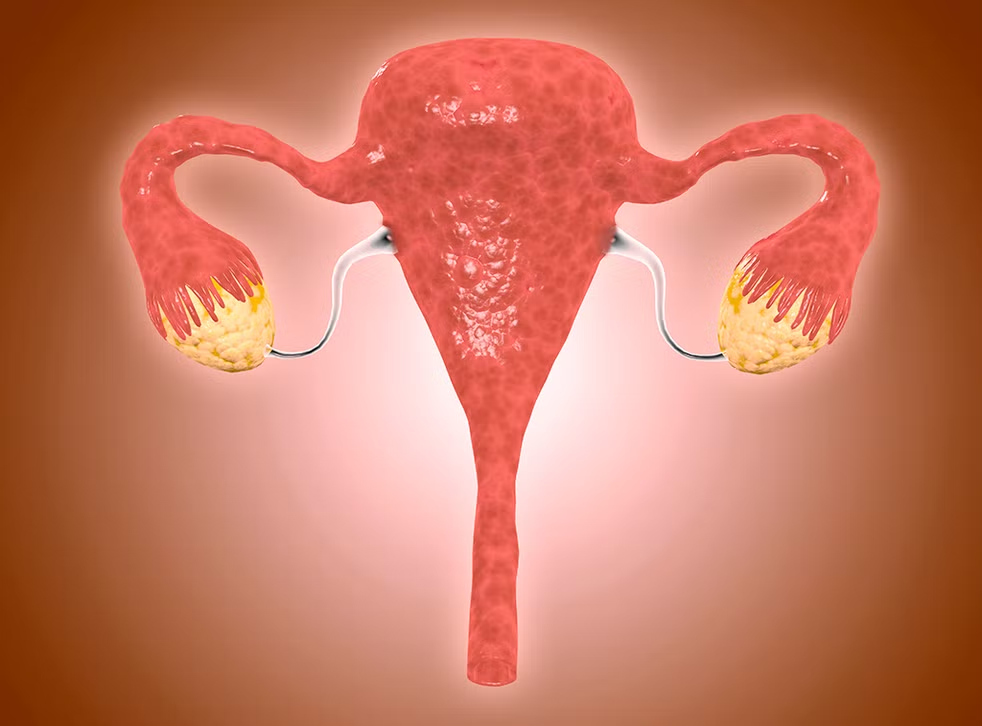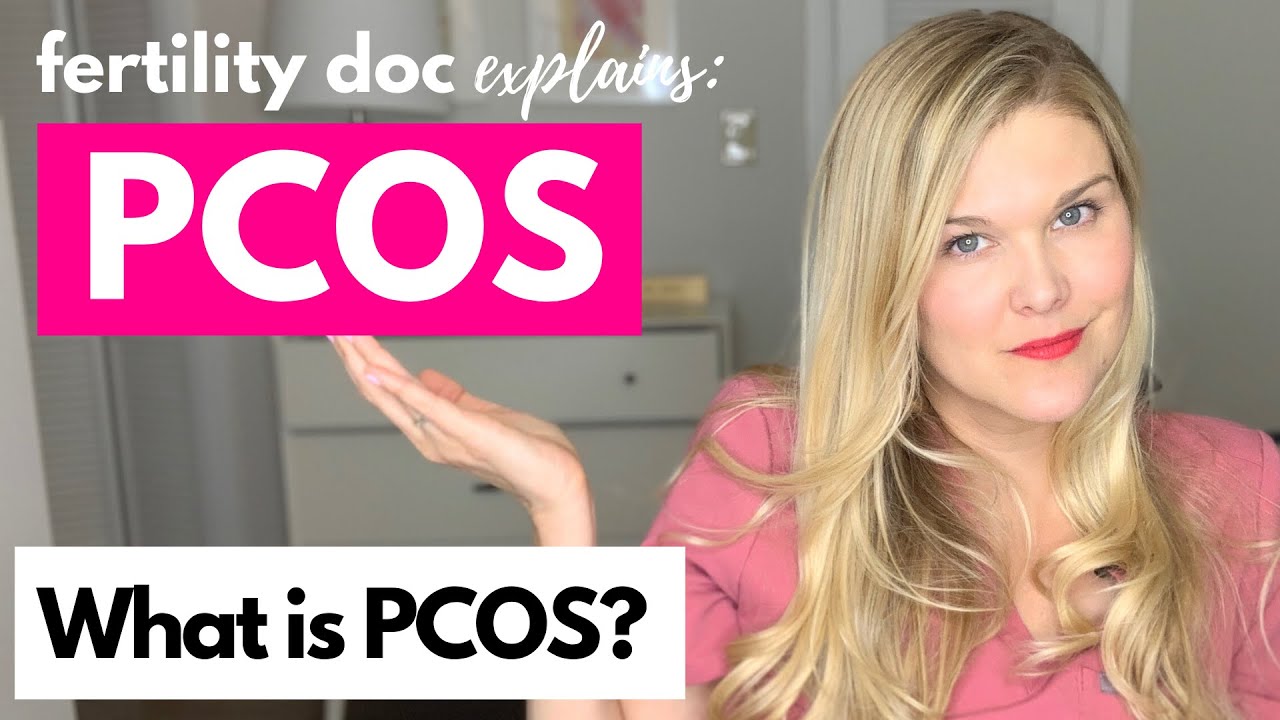The Impact Of Polycystic Ovary Syndrome On Women's Health And Well-Being
Polycystic Ovary Syndrome (PCOS) is a common hormonal disorder that affects women of reproductive age. It is characterized by the presence of multiple cysts on the ovaries, which can lead to irregular menstrual cycles and hormonal imbalances. In addition to physical symptoms, PCOS can also have a significant impact on a woman's mental and emotional well-being.
Author:Suleman ShahReviewer:Han JuFeb 07, 202398 Shares2K Views

Polycystic Ovary Syndrome(PCOS) is a common hormonal disorder that affects women of reproductive age. It is characterized by the presence of multiple cysts on the ovaries, which can lead to irregular menstrual cycles and hormonal imbalances. In addition to physical symptoms, PCOS can also have a significant impact on a woman's mental and emotional well-being.
Polycystic Ovary Syndrome Causes
The exact cause of Polycystic Ovary Syndrome (PCOS) is not fully understood, but it is believed to be related to a combination of several factors, including:
- Insulin resistance:This occurs when the body's cells do not respond properly to insulin, leading to an increase in insulin levels. High insulin levels can lead to an increase in androgen production, which can disrupt ovulation and menstrual cycles.
- High levels of androgens (male hormones):Women with PCOS have higher-than-normal levels of androgens, which can lead to symptoms such as excessive hair growth and acne.
- A genetic predisposition:There may be a genetic component to PCOS, as women with a family historyof the condition are more likely to develop it.
- Hormonal imbalances:Abnormal levels of follicle-stimulating hormone (FSH) and luteinizing hormone (LH) can disrupt ovulation and menstrual cycles.
It is important to note that the specific cause of PCOS can vary from person to person, and a combination of factors may contribute to the development of the condition.
What Are The First Signs Of PCOS?
The signs and symptoms of Polycystic Ovary Syndrome (PCOS) can vary from woman to woman, but some common early signs of the condition include:
- Irregular periods:Women with PCOS often experience irregular or absent menstrual cycles, or periods that are heavier or lighter than usual.
- Acne:Hormonal imbalances in women with PCOS can lead to an increase in oil production and breakouts of acne on the face, neck, chest, and back.
- Excess hair growth:High levels of androgens can cause excess hair growth on the face, chest, back, or stomach.
- Weight gain or difficulty losing weight:PCOS can lead to weight gain, especially around the abdomen, and can make it difficult for women to lose weight.
- Darkening of the skin:Women with PCOS may experience dark patches of skin, particularly around the neck, groin, or under the breasts.
It is important to note that not all women with PCOS will experience these symptoms, and some women may have other symptoms that are not listed here. If you suspect that you have PCOS, it is important to speak with a healthcare provider for a proper diagnosis and treatment plan.

What is PCOS? A Fertility Doctor Explains Polycystic Ovarian Syndrome
Impact On Women Health
Physical Symptoms
The physical symptoms of PCOS can include:
- Irregular menstrual cycles
- Heavy bleeding
- Acne
- Excessive hair growth
- Weight gain
- Darkening of the skin on the neck, groin, or under the breasts
- Ovarian cysts
Mental And Emotional Well-Being
In addition to physical symptoms, PCOS can also have a significant impact on a woman's mental and emotional well-being. Women with PCOS may experience:
- Depression and anxiety
- Low self-esteem and body image issues
- Difficulty with fertility and pregnancy
How To Treat Polycystic Ovary Syndrome
Polycystic Ovary Syndrome (PCOS) is a complex condition that can be treated through a combination of lifestyle changes, medications, and other therapies. Here are some common treatments for PCOS:
- Lifestyle changes:Eating a healthy diet, getting regular exercise, and losing weight can help to regulate insulin levels and improve symptoms of PCOS. Women with PCOS should aim to eat a diet low in processed foods and high in fruits, vegetables, whole grains, and lean protein.
- Medications:Women with PCOS may be prescribed medications to regulate their menstrual cycles, control insulin levels, and reduce the symptoms of androgen excess. Common medications used to treat PCOS include birth controlpills, metformin, and anti-androgens.
- Surgery:In some cases, surgery may be recommended to remove cysts from the ovaries. However, this is typically only recommended for women who have large cysts causing significant pain or other symptoms.
- Fertility treatments:Women with PCOS who are trying to conceive may be prescribed fertility treatments to help regulate their menstrual cycles and increase their chances of getting pregnant. Common fertility treatments for women with PCOS include clomiphene citrate, gonadotropins, and in vitro fertilization(IVF).
It is important to work with a healthcare provider to determine the best treatment plan for your specific needs and circumstances. The goal of treatment for PCOS is to manage symptoms, regulate menstrual cycles, and improve overall healthand well-being.
Homeopathy For Polycystic Ovary Syndrome
If you suffer with PCOS and are seeking an effective therapywith promising outcomes, homeopathy is the way to go. Homeopathic remedies provide an abundance of all-natural components. These components are good to your health as a whole. The following are the benefits of homeopathic medications in the treatment of PCOS:
- The treatment of PCOS with homeopathy has no negative effects.
- It corrects the hormonal imbalance's core cause organically.
- It regulates your ovulation and restores your menstrual cycle to normal.
- There are several PCOS symptoms, and not everyone has the same ones. Therefore, we provide individualized therapy with various homeopathic drugs.
- In addition to treating PCOS, homeopathic remedies may also treat acne, weight gain, hair loss, etc.
- Homeopathy alleviates anxiety and sadness caused by hormonal imbalance.
- Apis Mellificia is beneficial for lower abdominal discomfort.
- Pulsatilla aids in the treatment of delayed and infrequent periods.
- Sepia works really effectively to relieve excruciating back and lower abdominal pain.
- Lachesis treats discomfort associated with menstrual cycles that are too brief and have a poor flow.
- Graphities treats constipationwell in women with short, pale, and late menstrual cycles.
People Also Ask
Can PCOS Lead To Other Health Problems?
Yes, PCOS can increase the risk of developing other health problems, including diabetes, heart disease, and endometrial cancer. Women with PCOS should work with their healthcare provider to manage their symptoms and reduce their risk of developing these conditions.
Is PCOS A Permanent Condition?
PCOS is a chronic condition that typically lasts a lifetime. However, the symptoms of PCOS can be managed and improved through treatment, and women with PCOS can go on to live healthy, fulfilling lives.
Can A Healthy Lifestyle Help Manage PCOS?
Yes, a healthy lifestyle can play a key role in managing the symptoms of PCOS. Eating a healthy diet, getting regular exercise, and losing weight can help to regulate insulin levels and improve symptoms such as irregular menstrual cycles and excess hair growth.
Final Thought
The impact of Polycystic Ovary Syndrome (PCOS) on women's health and well-being can be significant, but with proper care and management, women with PCOS can lead healthy and fulfilling lives. Early diagnosis and treatment are important to reduce the risk of long-term health complications, such as infertility, type 2 diabetes, and heart disease.
Lifestyle changes, such as maintaining a healthy diet and engaging in regular physical activity, and medical interventions, such as hormonal birth control and medications to regulate insulin levels, can help manage the symptoms of PCOS.
Women with PCOS should work closely with a healthcare provider to determine the best course of action for managing their condition and maintaining optimal health and well-being.

Suleman Shah
Author
Suleman Shah is a researcher and freelance writer. As a researcher, he has worked with MNS University of Agriculture, Multan (Pakistan) and Texas A & M University (USA). He regularly writes science articles and blogs for science news website immersse.com and open access publishers OA Publishing London and Scientific Times. He loves to keep himself updated on scientific developments and convert these developments into everyday language to update the readers about the developments in the scientific era. His primary research focus is Plant sciences, and he contributed to this field by publishing his research in scientific journals and presenting his work at many Conferences.
Shah graduated from the University of Agriculture Faisalabad (Pakistan) and started his professional carrier with Jaffer Agro Services and later with the Agriculture Department of the Government of Pakistan. His research interest compelled and attracted him to proceed with his carrier in Plant sciences research. So, he started his Ph.D. in Soil Science at MNS University of Agriculture Multan (Pakistan). Later, he started working as a visiting scholar with Texas A&M University (USA).
Shah’s experience with big Open Excess publishers like Springers, Frontiers, MDPI, etc., testified to his belief in Open Access as a barrier-removing mechanism between researchers and the readers of their research. Shah believes that Open Access is revolutionizing the publication process and benefitting research in all fields.

Han Ju
Reviewer
Hello! I'm Han Ju, the heart behind World Wide Journals. My life is a unique tapestry woven from the threads of news, spirituality, and science, enriched by melodies from my guitar. Raised amidst tales of the ancient and the arcane, I developed a keen eye for the stories that truly matter. Through my work, I seek to bridge the seen with the unseen, marrying the rigor of science with the depth of spirituality.
Each article at World Wide Journals is a piece of this ongoing quest, blending analysis with personal reflection. Whether exploring quantum frontiers or strumming chords under the stars, my aim is to inspire and provoke thought, inviting you into a world where every discovery is a note in the grand symphony of existence.
Welcome aboard this journey of insight and exploration, where curiosity leads and music guides.
Latest Articles
Popular Articles